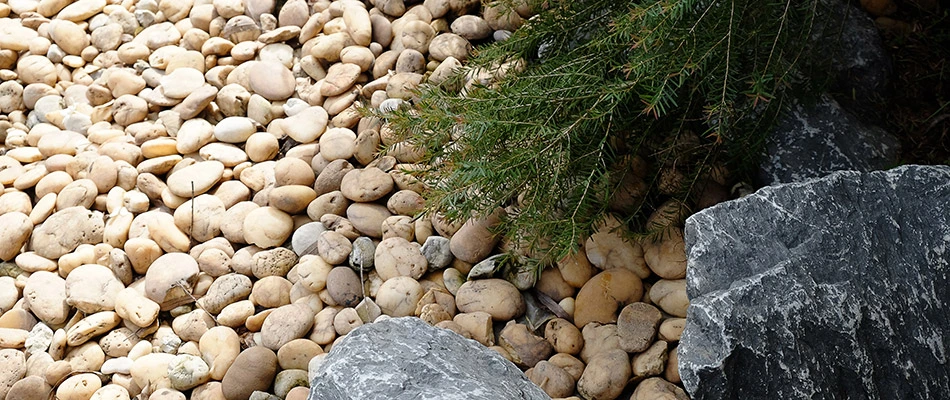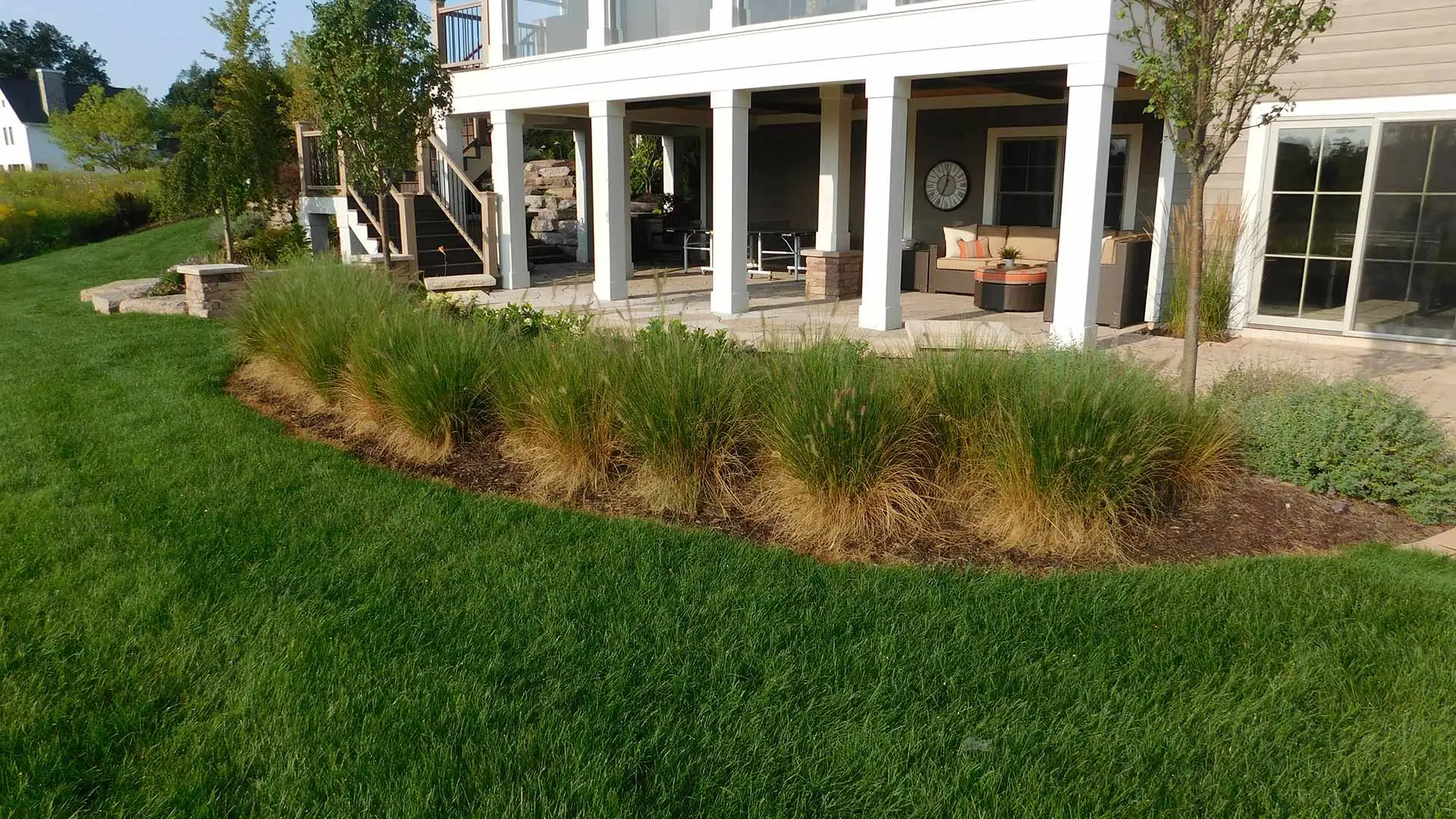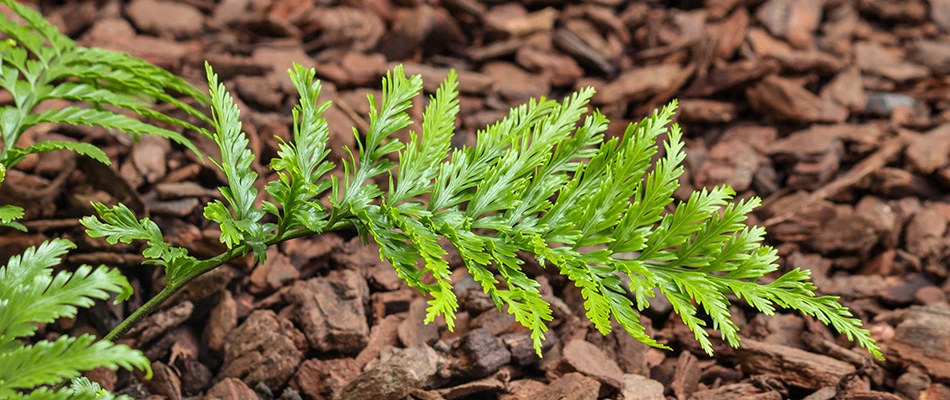Mulch and rock are common features around flower beds, trees, and shrubs because of their ability to protect plants and soil while enhancing the landscape’s visual appeal. Both options have advantages and disadvantages. Learning about their differences will help property owners determine whether rock or mulch is best for their yards.
At Rose Landscape Services, we are a premier lawn care company serving the Grand Rapids, Ada, and Cascade, Michigan area. Our professional landscapers have over 15 years of experience expertly applying rock and mulch to landscape beds.
What Are the Pros & Cons of Adding Mulch to Your Landscape Beds?
Mulch consists of organic wood chips and shreds from trees, such as oak, cedar, pine, eucalyptus, and cypress. It works best for flower beds and ornamental plantings because it adds an aesthetic value to the garden. Mulch is also lightweight enough to shift around when it’s time to add or remove plants.
Other advantages of mulch include:
- Water Retention: Mulch slows the evaporation rate of water around plants, allowing the roots more time to absorb moisture from the soil. The benefit can significantly cut down watering time and costs without sacrificing the plants’ health.
- Temperature Regulation: Mulch provides shade to soil and reduces the risk of plant stress in the summer. In the winter, the wood chips warm the ground and help prevent frost damage to plant roots. Michigan winters are intense, so plants will need protection against extreme weather changes.
- Erosion Reduction: Rain and snowmelt can erode soil, which provides nutrients and moisture to plant roots. Mulch keeps dirt in place without causing compaction.
- Weed Reduction: Weeds need sunlight to grow, but mulch shades the soil, inhibiting the growth of invasive plants.
- Insect Deterrent: Cedar has natural insect deterrent properties, which keep bugs away from flowers, shrubs, and trees.
- Attractiveness: Mulch is available in various colors, such as red or dark brown.
Because mulch is organic, it offers many benefits, however, it will inevitably degrade over time. Its decomposition will provide extra nutrients to the soil, but garden beds will need new applications each year. Other cons of using mulch are:
- Color can fade from sun exposure.
- Mulch can wash away during storms.
- Applications exceeding three inches can suffocate plants.
What Are the Pros & Cons of Adding Rocks to Your Landscape Beds?

Using rocks as your landscape bed covering offers many of the same benefits as mulch including erosion prevention, weed reduction, soil and plant root insulation, and moisture retention. Some additional, distinct benefits of rock ground coverings are:
- Variety: Lava rock, pea gravel, river rock, and quartz are some of the types many landscapers use in garden beds.
- Long-Term Savings: Though the initial installation is more expensive than mulch, rocks never need replacement. Property owners will save money over time on maintenance and rock replenishments.
- Wind Resistance: Unlike organic much, rocks are heavier and less likely to shift during windy or rainy weather.
Despite its benefits, rocks also have a few cons:
- They don't encourage plant growth as mulch does.
- They retain heat, which can be problematic in the summer by raising soil temperatures too high. The heat can also make gardening unpleasant without gloves.
- Rocks are effective weed reducers, but winds can blow dirt between the stones. The soil displacement might give weeds a place to sprout.
Contact Our Team Today for Rock or Mulch Installation
Have you made your decision between either rocks or mulch? Call us at (616) 293-0361 to schedule your ground covering installation. We serve Grand Rapids, Michigan as well as surrounding areas like Ada and Cascade. Give your soil and plants the protection they deserve today!



Comments (0)
Thanks for your comment!
Thanks for your feedback! Your comments have been successfully submitted! Please note, all comments require admin approval prior to display.
Error submitting comment!
There is a problem with your comment, please see below and try again.